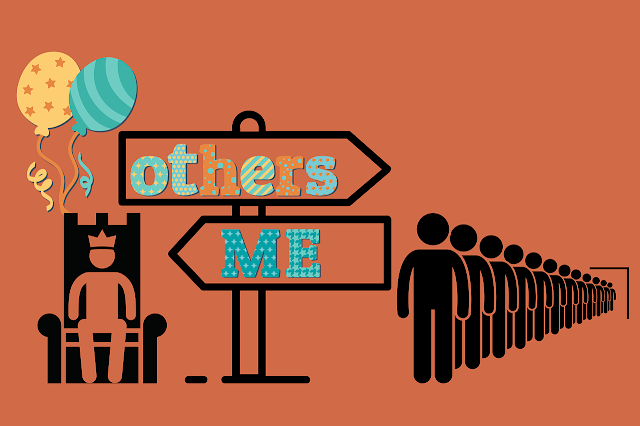Mitigating Selfishness through Resourceism: A Vision for a Fair and Sustainable Future
"In a world of shared resources, selfishness dissolves as we embrace the collective responsibility to ensure equal access, sustainable practices, and a future where the well-being of all thrives."
In today's world, the prevailing social, economic, and environmental challenges are often rooted in selfishness and the unequal distribution of resources. However, proponents of resourceism, including Michael Corthell and Jacque Fresco, believe that by embracing this ideology, we can create a society that prioritizes fair access, distribution, and utilization of our shared inheritance – the Earth's resources.
In this article, we will explore how resourceism offers a promising framework to mitigate selfishness and pave the way for a more equitable and sustainable future.
Equal Ownership and Shared Responsibility: Resourceism recognizes that all individuals are entitled to an equal share of the Earth's resources. By acknowledging that these resources are a collective inheritance, resourceism encourages a shift away from individualistic mindsets towards a sense of shared responsibility. This understanding helps foster a culture of cooperation and empathy, mitigating the selfish tendencies that often drive unequal resource distribution.
Eliminating Scarcity and Competition: One of the fundamental principles of resourceism is the elimination of artificial scarcity. By leveraging advanced technology, automation, and sustainable practices, we can harness the Earth's abundant resources to meet the needs of all individuals. This approach reduces the scarcity mindset that fuels competition and hoarding, addressing the root causes of selfish behavior. In a resource-based socio-economic system, where access to resources is not tied to monetary wealth, the incentive for selfishness diminishes, fostering cooperation and collaboration.
Holistic Education and Cultural Transformation: Resourceism advocates for a shift in education towards holistic learning, emphasizing the development of critical thinking, empathy, and cooperation. By educating individuals about the principles of resourceism and the importance of collective well-being, we can cultivate a sense of global citizenship and promote values that counteract selfish tendencies. This transformative education system promotes an understanding of the interconnectedness of humanity and the necessity of resource sharing for a sustainable future.
Technological Advancements for Social Good: Resourceism places great emphasis on utilizing advanced technology for the betterment of society. By redirecting technological progress towards solving societal challenges, such as poverty, hunger, and environmental degradation, we can create a world where the benefits of technology are shared by all. Through automation and sustainable practices, we can free up human potential from mundane and resource-intensive tasks, allowing individuals to pursue personal growth, creativity, and contribution to society. This shift encourages selflessness, as it focuses on the collective well-being rather than individual gain.
Environmental Stewardship and Sustainability: Resourceism recognizes the vital importance of preserving and nurturing the Earth's resources for future generations. By prioritizing sustainable practices, renewable energy sources, and ecological conservation, resourceism mitigates the selfish exploitation of resources for short-term gain. By ensuring the long-term viability of our planet, resourceism fosters a sense of responsibility and intergenerational equity, discouraging selfish behavior that disregards the well-being of future inhabitants.
Conclusion Resourceism offers a compelling vision for mitigating selfishness by addressing the core issues of resource distribution and societal values. By embracing the principles of equal ownership, shared responsibility, technological progress for social good, and environmental sustainability, resourceism provides a framework for a fair and sustainable future.
Through education and cultural transformation, resourceism promotes empathy, cooperation, and a shift towards a collective mindset. By adopting resourceism as a guiding principle, we can collectively strive for a society that values the well-being of all individuals, fostering a world free from the limitations imposed by selfishness.
References
Center for the Advancement of the Steady State Economy. (n.d.). Resource-Based Economics. Retrieved from https://steadystate.org/discover/definitions/resource-based-economics/
The Venus Project. (n.d.). Resource-Based Economy. Retrieved from https://www.thevenusproject.com/resource-based-economy/
Fresco, J. (2017). The Best That Money Can't Buy: Beyond Politics, Poverty & War. BenBella Books.
Corthell, M. (2017). Beyond Money: A Handbook for Generating Sustainable Wealth. Magnolia Publishing.
Fresco, J., & Meadows, R. (2008). The Venus Project: The Redesign of a Culture. Retrieved from https://www.thevenusproject.com/faq/jacque-fresco-redesign-culture/
National Center for Biotechnology Information. (2021). Educational Interventions to Promote Global Citizenship. Retrieved from https://www.ncbi.nlm.nih.gov/books/NBK565980/
The Venus Project. (n.d.). Sustainability. Retrieved from https://www.thevenusproject.com/sustainability/
